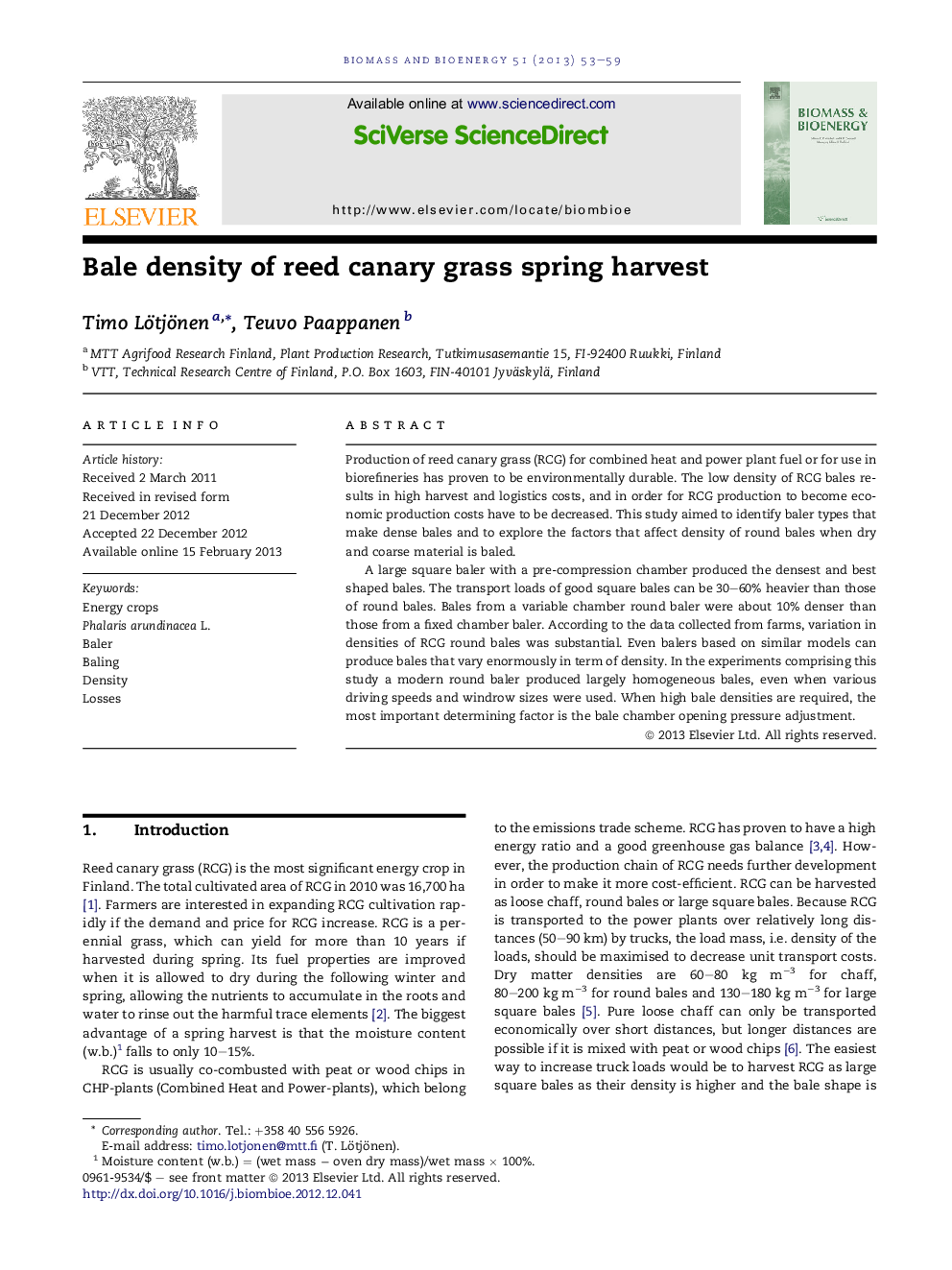| Article ID | Journal | Published Year | Pages | File Type |
|---|---|---|---|---|
| 677082 | Biomass and Bioenergy | 2013 | 7 Pages |
Production of reed canary grass (RCG) for combined heat and power plant fuel or for use in biorefineries has proven to be environmentally durable. The low density of RCG bales results in high harvest and logistics costs, and in order for RCG production to become economic production costs have to be decreased. This study aimed to identify baler types that make dense bales and to explore the factors that affect density of round bales when dry and coarse material is baled.A large square baler with a pre-compression chamber produced the densest and best shaped bales. The transport loads of good square bales can be 30–60% heavier than those of round bales. Bales from a variable chamber round baler were about 10% denser than those from a fixed chamber baler. According to the data collected from farms, variation in densities of RCG round bales was substantial. Even balers based on similar models can produce bales that vary enormously in term of density. In the experiments comprising this study a modern round baler produced largely homogeneous bales, even when various driving speeds and windrow sizes were used. When high bale densities are required, the most important determining factor is the bale chamber opening pressure adjustment.
► High bale density is essential, when the aim is to reduce transport costs of reed canary grass. ► A large square baler produced the densest bales (dry matter 171 kg m−3) in our study. ► Dry matter bale density of round bales was 108–146 kg m−3. ► Driving speed and windrow size had little effect on bale density in round baling experiment. ► The transport loads of good square bales can be 30–60% heavier than those of loose round bales.
